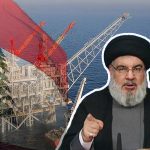Free Speech Becomes A Mockery In Lebanon


Hasan Shaaban was another one who was severely beaten and received life threatening messages and calls as a Lebanese journalist. Those in the position of power seem to be doing this more than anyone else, leaving the media wondering what wrong they are truly doing to deserve this.
Both attacks and threats have now lead to debate amongst netizens; something that also resonates with the latest attacks on the celebrated controversial writer Salman Rushdie. Shaaban was beaten up while he was documenting protests over water shortage in Beit Yahoun, situated in the southern part of Lebanon. His mistake was that he was filming all this in the small town that is under Hezbollah control, hence inviting their wrath later.
Related Posts
Shaaban’s video went viral that clearly documented the exasperation of the locals, who have had to buy water through expensive tankers to meet their daily needs. He was later assaulted by villagers who mostly support the political party.
Protests over the economic situation, shortages of electricity, water and medicine, or over the collapse of state-provided services are not uncommon in the country. The nation’s financial ruin is blamed widely on Lebanon’s political class, of which Hezbollah is part.
State intelligence agencies regularly target journalists and activists for expressing the truth that the Lebanese ruling class continues to enjoy on the money of the commoners, depriving them of basic amenities leave alone options to earn a livelihood.
Death threats against and assassinations of journalists are a systemic norm in Lebanon, says Ayman Mhanna, head of the Beirut-based Samir Kassir Foundation and Centre for Media and Cultural Freedom. “There’s a norm of impunity,” he said speaking to a local media agency. “Those who do perpetrate these crimes don’t even bother to hide their identities because they know they are protected. ‘They’– culprits backed by political parties – “know that the judiciary and Lebanese security institutions do not have the courage or political will to enforce the law.”








